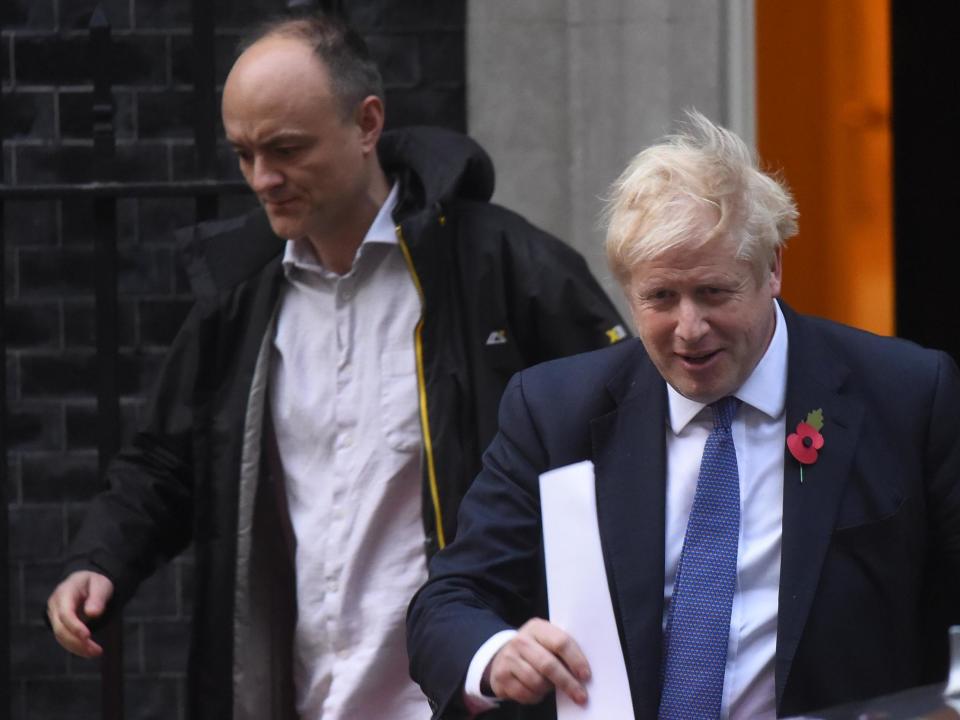Is Boris Johnson really planning to give away power to northern voters? The early signs aren't good

The real test for Boris Johnson’s commitment to the north will not be whether he holds a cabinet meeting there (he will do so on 31 January, to mark Brexit day), or even moves the House of Lords to York (which he probably won’t, despite the headlines). The test will be whether he devolves more power to the regions rather than hands out the sweeteners from London and makes sure the Tories get the credit.
The early signs are not good. On a visit to Doncaster Royal Infirmary, Matt Hancock, the health and social care secretary, heaped praise on the new Tory MP for Don Valley, Nick Fletcher, who ousted Labour’s Caroline Flint last month. He wrote the two local Labour MPs, Ed Miliband and Rosie Winterton, out of the script on his visit. It’s obvious who will get the plaudits if and when the town gets a new hospital. Hancock told local media: “Doncaster could not ask for a stronger voice in parliament than Nick Fletcher.”
The pork barrel will doubtless be rolled out after £100bn of infrastructure projects are confirmed in next month’s Budget. Labour would be foolish to underestimate the power of money. The party’s plight in its former heartlands is made even worse by its admissions that it has neglected them.
Sensing an historic opportunity to deliver where Labour failed, the Tories will run a permanent campaign until… well, the next election. In an email to voters, the Tories list the government’s public service pledges, adding: “from time to time, we’d like to tell you what that means for your area.” You bet they would.
But it’s a top-down, government-knows-best approach: the “stronger towns fund” invites bids for money which will be judged in Whitehall. Of course, all governments talk a good game on devolution but then find it hard to let go. I recall Tony Blair’s ministers offering the best councils “earned autonomy” – my favourite oxymoron. No prizes for guessing who would decide which authorities deserved more power.
Not surprisingly, Johnson favoured more devolution to cities and regions while he was London mayor, including on tax-raising and borrowing; housing; transport; health; the justice system and skills. The PM who styles himself a “Brexity Hezza” should take advice from Michael Heseltine, even though he has lost the Tory whip. Lord Heseltine has proposed that England’s metro mayors, including Labour’s Andy Burnham in Greater Manchester and the Tories’ Andy Street in the West Midlands, be given tax-raising powers, control of school performance and housing.
The other big test of the government’s commitment to the north and midlands will be whether it makes a huge investment in skills, especially for the 50 per cent who don’t go to university. Otherwise, local people will not reap the benefit from the shiny new “Boris bridges” and more roads.
As ministers agonise over the £106bn HS2 project, they should realise that much better links within and between regions are more important to local people than quicker journey times to London. Some ministers believe it will be hard for Johnson, as “the infrastructure PM”, to block HS2 while he’s still hoping something will turn up to allow him to veto a third runway at Heathrow.
Rather than a gimmicky move out of London for the Lords – which could also invite unflattering comparisons with the European parliament’s travelling circus between Strasbourg and Brussels – Johnson should replace it with a second chamber elected by proportional representation from Scotland, Wales and Northern Ireland and the English regions. That wouldn’t guarantee the Union survived the growing threat of a breakaway by Scotland and Northern Ireland, but it would surely help.
There is even less chance of Johnson listening to Gordon Brown than Heseltine, but he should. To prevent the Union fracturing under pressure from “today’s populist nationalisms”, whether based on Brexit or Scottish independence, Brown said a forum of the nations and regions “will become essential if transferring decision-making powers out of Brussels is not to lead to even more centralisation in Whitehall, and could become the forerunner for a very different second chamber”.
The government is considering proposals from Andrew Dunlop, a former Scottish Office minister, for a senior minister to ensure the four nations work more closely together. Johnson will need to do better than this. A more promising blueprint is from Lord Salisbury, the former leader of the Lords, for a partly elected second chamber from the regions and nations.
Ultimately, Boris Johnson’s new voters will probably judge him more on public services, jobs and the cost of living than on structures or infrastructure. But giving away real power to the regions would buy some political credit – and he would deserve it.
Read more
Lisa Nandy’s attack on New Labour gives her a chance of victory

